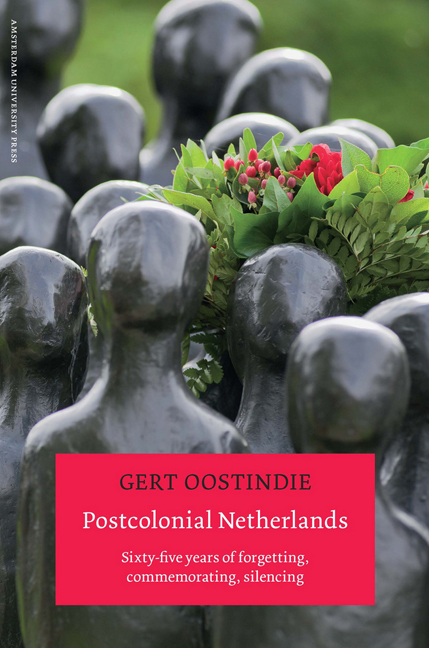Book contents
- Frontmatter
- Contents
- Introduction
- 1 Decolonization, Migration and the Postcolonial Bonus
- 2 Citizenship: Rights, Participation, Identification
- 3 The Struggle for Recognition: war and the Silent Migration
- 4 The Individualization of Identity
- 5 Imagining Colonialism
- 6 Transnationalism: a Turning Tide?
- 7 An International Perspective
- 8 ‘Postcolonial’ (in the) Netherlands
- Notes
- Bibliography
- Acknowledgements
- Index of People, Organizations and Memorial Sites
2 - Citizenship: Rights, Participation, Identification
Published online by Cambridge University Press: 20 January 2021
- Frontmatter
- Contents
- Introduction
- 1 Decolonization, Migration and the Postcolonial Bonus
- 2 Citizenship: Rights, Participation, Identification
- 3 The Struggle for Recognition: war and the Silent Migration
- 4 The Individualization of Identity
- 5 Imagining Colonialism
- 6 Transnationalism: a Turning Tide?
- 7 An International Perspective
- 8 ‘Postcolonial’ (in the) Netherlands
- Notes
- Bibliography
- Acknowledgements
- Index of People, Organizations and Memorial Sites
Summary
The photo of a Moluccan demonstration at the Dutch parliament square Binnenhof in The Hague in the 1950s tells a clear story of identity claims. The banner ‘Christelijk Nederland doe ons recht!’ appositely expresses the mood of the demonstrators: you Dutch are Christians, so are we (because you colonized us), so be just to us! No favors were being asked, it was simply a demand for rights. The desire for those rights stemmed from a centuries-long colonial alliance and were further underlined in the appeal to a shared religion. The Netherlands should not shirk its Christian duty.
The Hague, and Dutch society as a whole, has shown itself sensitive to this appeal from kindred spirits over the last 65 years. A large majority of postcolonial migrants were able to settle in the Netherlands and become rightful citizens without having to undergo complicated procedures with uncertain outcomes. Their Dutch citizenship gave them legitimate entry into the mother country. Although there were strong objections in The Hague circles to the idea that judicial rights stemming from the colonial period should be translated into full citizenship of the Netherlands, what is more relevant is that these rights were ultimately accepted. The acceptance of the right to cultural difference, which Indisch community leader Tjalie Robinson defined forty years later as a ‘civil right’, was trickier.
Citizenship has many dimensions, even if we ignore recent debates on transnational and postnational citizenship and look exclusively at citizenship within a single nation state that assigns rights and exacts duties. Besides the formal criterion of legal insider status, there are the dimensions of civil rights and participation in all spheres of society. Ideally, every citizen in a democratic society has equal access to these, but in practice this is often not the case. Finally, there is the dimension, even harder to quantify, of belonging, of affinity with the society and feeling at home within it. The degree to which migrants identify with their new society varies enormously.
This has to do with their own history and culture, but also with the space the receiving society grants diversity.
- Type
- Chapter
- Information
- Postcolonial NetherlandsSixty-Five Years of Forgetting, Commemorating, Silencing, pp. 48 - 72Publisher: Amsterdam University PressPrint publication year: 2012



